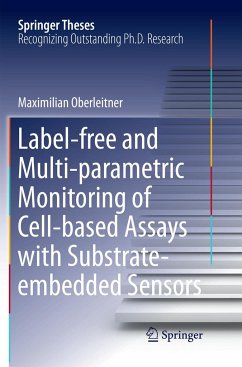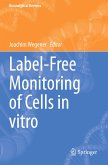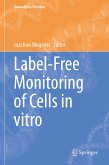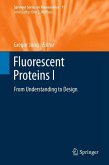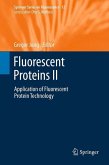This thesis describes novel substrate embedded physical sensors that can be used to monitor different types of cell-based assays non-invasively and label-free. The sensors described provide integrative information of the cells under study with an adaptable time resolution (ranging from milliseconds to days). This information about the dynamic cell response to chemical, physical or biological stimuli defines a new paradigm in fundamental biomedical research.
The author, Maximilian Oberleitner, describes approaches in which the cells are directly grown on different sensor surfaces (gold-film electrodes, shear wave resonators or dye-doped polymer films). This approach, with the reacting cells in particularly close proximity and contact with the sensor surface, is key to a remarkable sensitivity, opening the way for a variety of new applications. This thesis not only introduces the fundamentals of each approach, but it also describes in great detail the designprinciples and elucidates the boundary conditions of the new sensors.
The author, Maximilian Oberleitner, describes approaches in which the cells are directly grown on different sensor surfaces (gold-film electrodes, shear wave resonators or dye-doped polymer films). This approach, with the reacting cells in particularly close proximity and contact with the sensor surface, is key to a remarkable sensitivity, opening the way for a variety of new applications. This thesis not only introduces the fundamentals of each approach, but it also describes in great detail the designprinciples and elucidates the boundary conditions of the new sensors.

